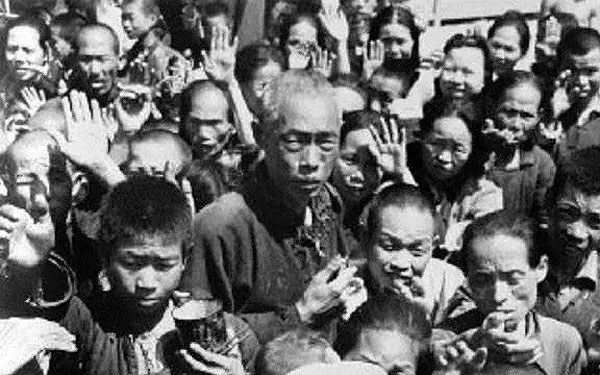
Great Famine in China, 1958-1962: A Documentary History, The
Feng Ke collaborated with Zhou Xun of the University of Hong Kong to collect information on the Great Famine. Zhou selected 121 items from the official archives to publish "The Great Famine in China, 1958-1962: A Documentary History." Many of the archives they accessed at the time have since been classified again and are not available.
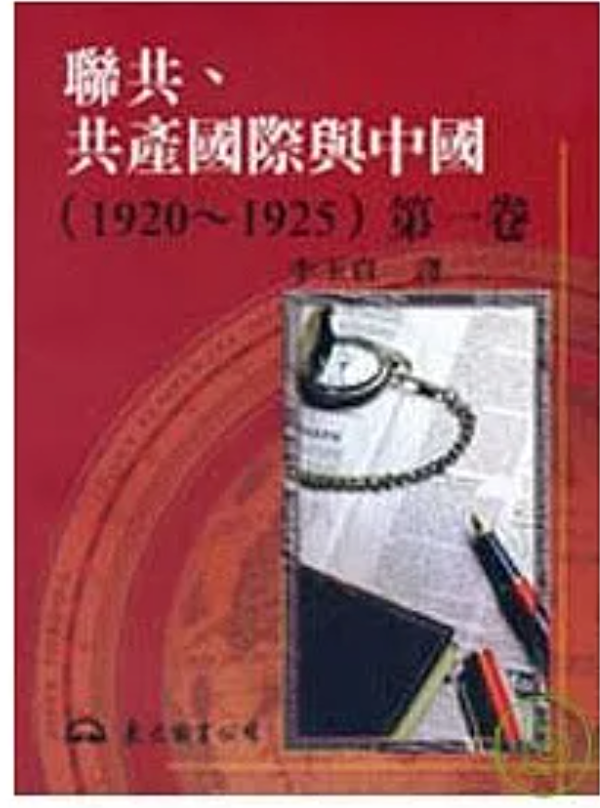
The United Communist Party, The Communist International and China (1920-1925)
The author, Li Yuzhen, published this book in 1997. The contents are all taken from the declassified archives of the former Soviet Union. Almost all of the 205 documents in this book are published for the first time. The documents reveal the various dimensions of Moscow's relations with China from 1920 to 1925 as well as little-known inside stories. It shows that the Communist Party of the Soviet Union was the real decision-maker of the Comintern. This book shows the complex relationship between China and the Soviet Union, the Chinese Communist Party and the Comintern, the Chinese Communist Party and the Kuomintang, and Moscow and the various political forces in the Chinese court from different perspectives. It provides important clues for the study of history.

China on the Edge: The Crisis of Ecology and Development
Published in China in 1989, this book caused a sensation, reportedly selling as many as 300,000 copies. Described as the first "descriptive study" of the reality of China. In order to raise national awareness of the need for environmental protection, it examines the agricultural, environmental, and resource problems that China was likely to encounter in the course of modernization and predicts that the future would likely be even worse. The book was banned immediately after publication.

Fracture—Chinese society since the 1990s
This monograph by Sun Liping, a professor at Tsinghua University, was published by China Literature Publishing House in 2003. The author systematically analyzes a series of changes in Chinese social life since the 1990s. The book discusses the meaning and characteristics of fractured society; the formation and background of fractured society; widening income gaps and the formation of vulnerable groups; the new urban-rural dual structure; trust crisis and social order; social conflicts and institutional innovation, etc.
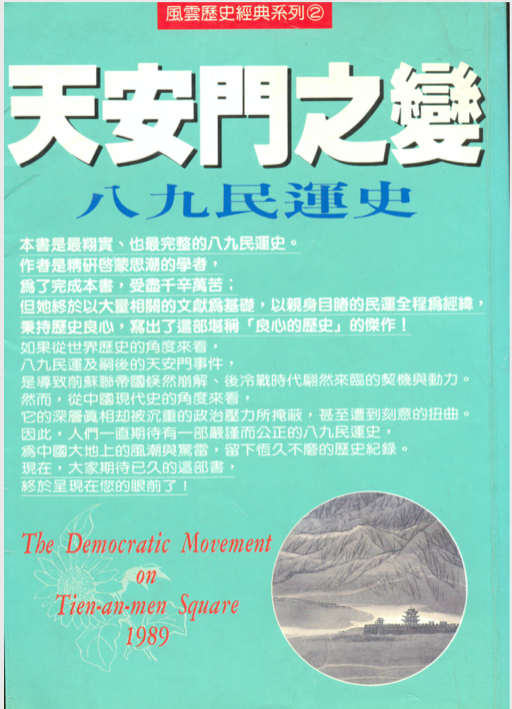
The History of the 1989 Democracy Movement
This 10-volume book of 1.3 million words was written by Chen Xiaoya, a former associate researcher at the Institute of Political Science of the Chinese Academy of Social Sciences. The first edition was written in April 1994 and published in Taiwan in 1996, but with just over 200,000 words. Later, Chen Xiaoya revised the book several times to increase its content: starting from 1976, the year of Mao Zedong's death, and covering Hu Yaobang's political career as well as the background of the June Fourth Incident and also adding the contents of the memoirs of the parties involved in the June Fourth Incident. The number of words was increased to 1,360,000 words in 2016 when the book was published. The book was reprinted in 2019.
Purchase link:https://www.amazon.com/%E3%80%8A%E5%85%AB%E4%B9%9D%E6%B0%91%E9%81%8B%E5%8F%B2%E3%80%8B%E3%80%8A%E5%85%AB%E4%B9%9D%E6%B0%91%E8%BF%90%E5%8F%B2%E3%80%8B-%E7%AC%AC%E5%85%AB%E5%8D%B7-DEMOCRACY-MOVEMENT-Traditional-ebook/dp/B07VN848V8
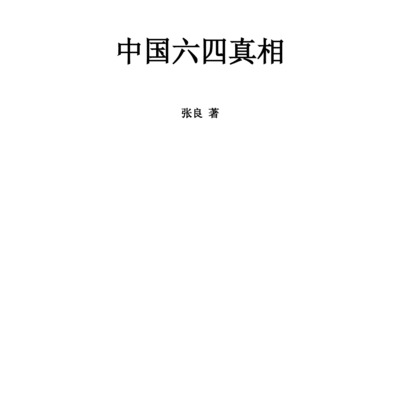
The Tiananmen Papers/The Truth about June Fourth in China
<i>The Tiananmen Papers </i> is an English-language book based on internal government files on the June 4 incident in China. It was provided by a person under the pseudonym Zhang Liang, translated by Prof. Perry Lin, edited by Prof. Lai An-You, and with a conclusion by Prof. Xia Wei, Dean of the Berkeley School of Journalism. The book was published in January 2001 by the American Public Affairs Press. <i>The Truth about June Fourth in China </i> is the Chinese version of <i>The Tiananmen Papers </i>, published on April 15, 2001 by Der Spiegel Publishing House. The Chinese version retains the deleted contents of the English version and is three times as long as the English version.
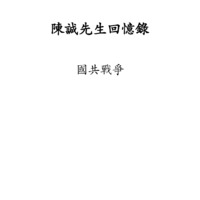
Chen Cheng's Memoirs—The War between the Nationalists and Communists
Mr. Chen Cheng (courtesy name Cixiu; alias Shisou) served as the commander of the KMT army, commander-in-chief of the group army, commander-in-chief of the theater of operations, and chief of the general staff of the KMT. After the defeat of the Kuomintang army in Taiwan, Chen Cheng served the Administrative Yuan as Vice President of the Kuomintang. The volumes associated with *Chen Cheng's Memoirs* were published by Taiwan's National Museum of History in 2005. The series is divided into six volumes: *The Northern Expedition and the Chaos* (one volume), *The War between the Nationalists and Communists* (one volume), *The War of Resistance Against Japanese Aggression* (two volumes), and ***The Construction of Taiwan*** (two volumes). The first volume, *The War between the Nationalists and Communists* includes three parts: *Suppressing the Communists - Memories of the Military*, *Summary of Mr. Chen's Words and Actions*, and *Correspondence and Telegrams*. The book has original historical materials related to the five sieges and the counter-insurgency. In particular, this is the first time that important historical materials regarding the correspondence between Chiang Chung-cheng (courtesy name of Chiang Kai-shek) and Cixiu have been made public.
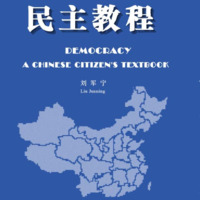
Democracy Curriculum
Written by Chinese liberal intellectual Liu Junning, this book circulated underground in 2006. The book parses the fundamentals of democracy as well as historical experience. It was quickly banned in China.

Liu Xiaobo Memorial Anthology
This book is a collection of essays in memory of the Nobel Peace Prize winner Liu Xiaobo. It was edited by Cai Chu following his death.
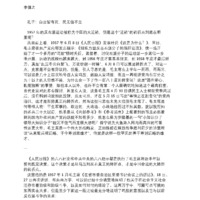
When did Chairman Mao decide to lure the snakes out of their holes?
This is an important article in Li Shenzhi's *Collected Writings*, which analyzes in detail why Mao Zedong wanted to "oppose the right," and how he launched the "anti-right" campaign.
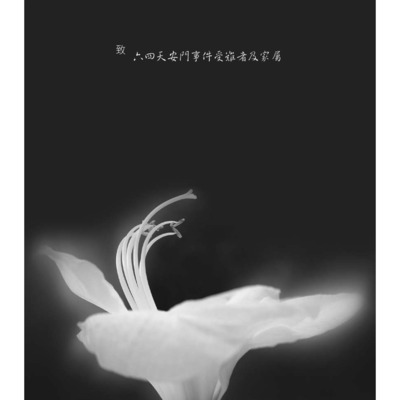
June Fourth Poems
"June Fourth Poetry Collection" is a collection of poems about the June Fourth Incident in 1989. The poems were collected and compiled by international experts and scholars in collaboration with activists who participated in the movement and those who lived in exile during the year following the crackdown. The books was published by Boulder Publishing House. Jiang Pinchao, a student leader of the pro-democracy movement in those years, is the chief editor of the collection. It is divided into five parts. The book was not published in mainland China due to seizure by the Chinese government. In May 2007, it was distributed by the June Fourth Cultural Communication Association and Amnesty International at the California Institute of Technology in the United States.

History of the Chinese Thought Movement
This book is a masterpiece by Chinese scholar Li Honglin. The author was a representative of the ideological liberation movement during reform and opening up and was arrested after the Tiananmen Square incident in 1989. This book summarizes the various ideological purges launched by the CCP since its establishment in 1949.
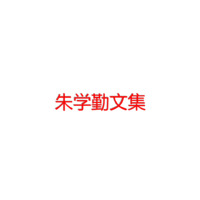
Zhu Xueqin Anthology
A collection of essays by Zhu Xueqin, a Chinese liberal intellectual. He has faced and criticizes various problems in China from a liberal point of view. Most of Zhu Xueqin's books were later banned.
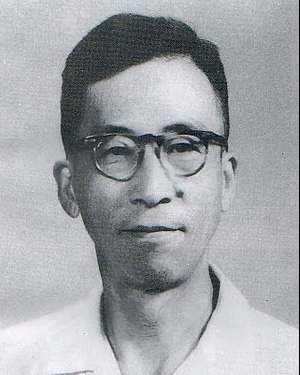
Gu Zhun
Gu Zhun (1915-1974)was 12 when joined the accounting firm of Pan Xulun, the founder of China’s modern accounting. At the age of 15, he became the principal of the firm's correspondence school, and at the age of 18, he completed the book Accounting for Banks, which was the first textbook on bank accounting in China. In 1935, Gu Zhun joined the Communist Party of China; he was concerned about the fate of the country, and actively participated in the resistance to the Japanese aggression. After the war, he served as the director of the Shanghai Municipal Finance Bureau and the Shanghai Municipal Taxation Bureau. During the Three-Antis and Five-Antis Campaign in 1952, he was dismissed from his post because of his dissenting views on the taxation policy of the time. He insisted that taxes should be collected in accordance with the law, and did not agree with the methods based on self-reporting and democratic evaluation (*minzhu pingyi*). In 1956, he joined the Institute of Economics (now belonging to the Chinese Academy of Social Sciences) as a researcher, and became the first person to put forward the theory of China's socialist market economy with his article entitled "*On the Production of Commodities and the Law of Value under the Socialist System*”. Because of his dissatisfaction with the Rectification Movement and the Soviet Union, Gu Zhun was labeled a Rightist and expelled from the Party. He was exiled to work in labor camps in Hebei Province, and later Henan Province and a Beijing suburb, from 1958 to 1960. In 1962, Gu Zhun’s Rightist label was removed and he returned to the Institute of Economics. In September 1965, he was labeled an "Extreme Rightist" and exiled to Zhoukoudian in the suburbs of Beijing because he insisted on his political and economic ideas, including the importance of respecting the law of value. He was the only officially labeled "Second-time Rightist" in China. During the Cultural Revolution, Gu Zhun was repeatedly criticized and punished, and from 1969 to 1972 he was sent to work in the May Seventh Cadre School in Xi County, Henan Province. On December 3, 1974, he died of lung cancer in Beijing.
Gu Zhun always upheld the spirit of independent thinking. He not only made significant contributions to the field of economics in China, but also devoted himself to the study of politics, history and philosophy, translating several foreign classic works on economics and democracy and writing a large number of articles. As he personally experienced the Anti-Rightist Campaign, the Great Famine, and the Cultural Revolution, his diary is also considered a valuable source of information on these historical events. According to Wang Xiaolin's (see separate entry) book, *Gu Zhunun and His Times*, although Gu Zhun was not formally baptized as a Christian, he was exposed to Christianity since his childhood and had a deep understanding of Christianity. As Wang wrote in her preface: "His thoughts and behavior never departed from the pursuit and search for human nature, humanism, the laws of nature, the natural rights, namely the freedom and equal rights that all human beings were born with".
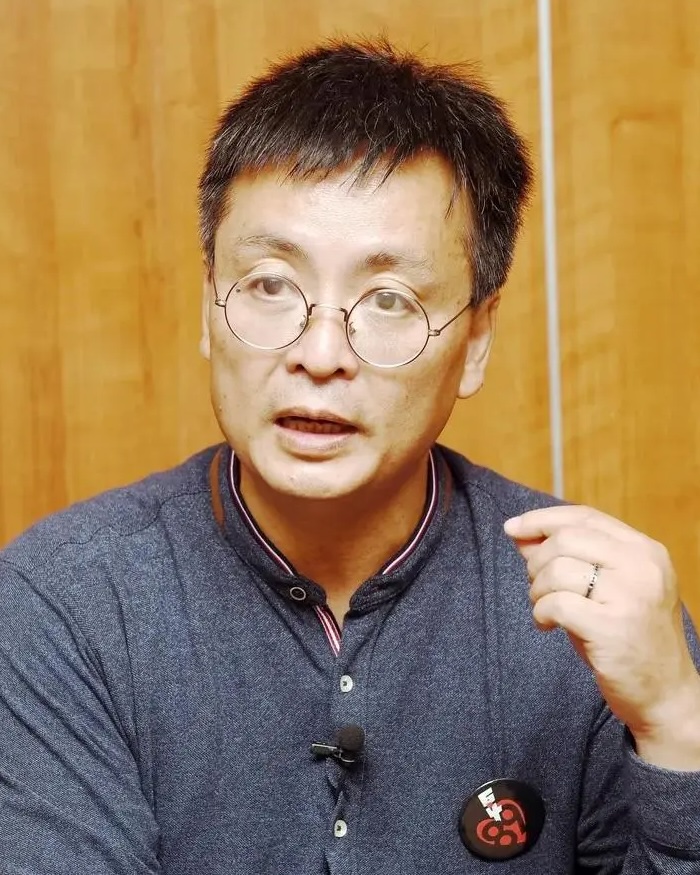
Feng Congde
Feng Congde (March 5, 1966-), a native of Sichuan Province, was one of the student organizers of the 1989 democracy movement. Feng was admitted to Peking University in 1982 and after graduation was admitted to the Institute of Remote Sensing of Peking University in 1986 to pursue a postgraduate degree. During the 1989 democracy movement, he was a standing committee member of the Peking University Preparatory Committee, the chairman of the Beijing Students' Autonomous Federation, as well as the deputy commander of the Tiananmen Square Hunger Strike Group and of the Defend of Tiananmen Square Headquarters, which placed him on the Chinese government's 21 most wanted list. Feng and his wife Chai Ling, who was also a student organizer wanted by authorities, fled to France in 1990 after 10 months of hiding in China. Feng studied religious sciences at Sorbonne Paris, where he received his master's and doctoral degrees. In August 2005, he started to work at Human Rights in China in New York, and he resigned in 2008 to work as a web database designer in the Bay Area.
Feng founded the [Tiananmen Massacre Memorial website](https://www.64memo.org/), and was a co-founder of the web-based Tiananmen University of Democracy (seems no longer operating), and is currently a board member of the China Foundation for Education for Democracy. He is currently a director of the China Democratic Education Foundation. He has written and published *Conflict of Tiananmen: An Insider Account of June 4 of June Fourth and A Tiananmen Journal*.
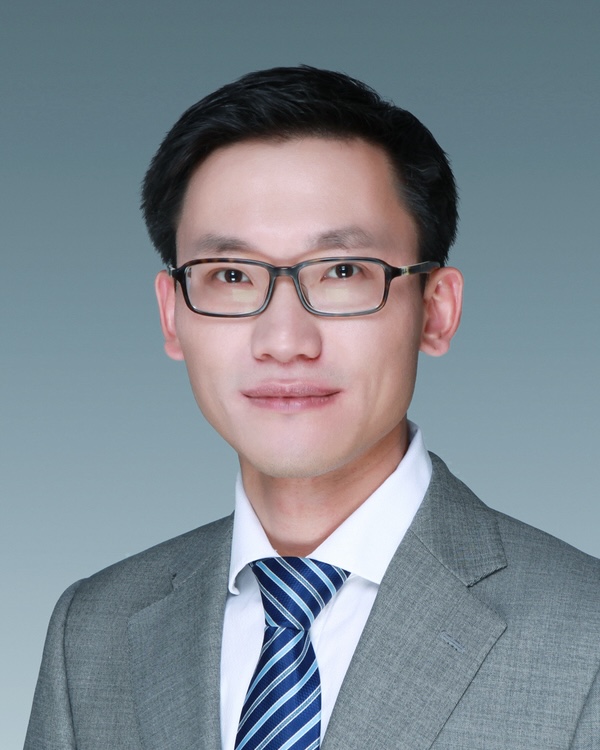
Fan Ziying
Fan Ziying (1981-) is a scholar of finance and economics. Fan earned his PhD in economics from Fudan University, and is currently a professor and dean of the School of Public Economics and Administration at Shanghai University of Finance and Economics. Fan has long been engaged in research on public finance and development economics, and has published many papers in prominent academic journals both at home and abroad, as well as a number of commentaries in various financial media outlets.
Fan Ziying has used theories of economics to analyze the Great Famine in China and has published several papers, including “Several Comments on the Research of the Chinese Great Famine,”“Why Did the Great Famine Happened in the Main Grain-Producing Areas?” and "Why Did the Great Famine End in 1962?.”



